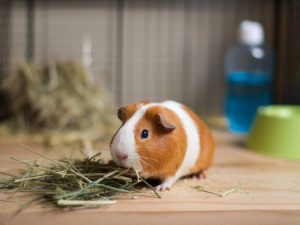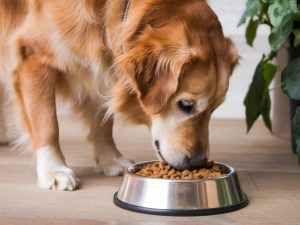Probiotics for dogs: are they necessary for gut health?

probiotics for dogs: are they necessary for gut health?
Probiotics have become a buzzword in the health industry, not just for humans but also for our furry companions. As pet owners become more conscious of their dog’s health, many are considering the benefits of probiotics. But the question remains: are they necessary for a dog’s gut health? In this article, we’ll dive into the world of probiotics for dogs, exploring their potential benefits, when they might be necessary, and how to choose the right one for your canine buddy.
Understanding Probiotics
Probiotics are live microorganisms, primarily bacteria, that provide health benefits to the host when administered in adequate amounts. These « good » bacteria naturally reside in the digestive tract, aiding in digestion, nutrient absorption, and contributing to the immune system’s overall health. For dogs, probiotics can come in the form of supplements or foods fortified with these friendly bacteria.
Potential Benefits of Probiotics for Dogs
Just like in humans, maintaining a healthy balance of gut bacteria in dogs can lead to various health benefits. Some of the observed benefits of probiotics for dogs include:
- Improved Digestion: Probiotics can help break down food more effectively, reducing common digestive issues like diarrhea, constipation, and bloating.
- Enhanced Nutrient Absorption: A balanced gut microbiome can aid in the more efficient absorption of nutrients, ensuring your dog gets the most from their diet.
- Boosted Immune System: A significant portion of the immune system is located in the gut. Healthy gut flora can enhance the immune response, offering better pathogen protection.
- Reduction of Allergies: There is evidence to suggest that probiotics might help in modulating immune responses and reducing allergic reactions.
- Healthy Weight Management: By supporting digestion and nutrient absorption, probiotics can play a role in helping dogs achieve and maintain their ideal weight.
Situations Where Probiotics Might Be Necessary
While probiotics can be beneficial for many dogs, they are particularly crucial in certain situations:
- After Antibiotic Treatment: Antibiotics can wipe out both harmful and beneficial bacteria in the gut. Administering probiotics can help replenish these good bacteria, restoring balance more quickly.
- Stressful Situations: Events like moving houses, traveling, or introducing a new family member can stress a dog, potentially disrupting their gut ecology. Probiotics can aid in maintaining balance during these challenging times.
- Dietary Changes: Switching dog food can upset your dog’s digestive system. Probiotics can ease this transition by stabilizing gut flora.
- Digestive Disorders: Dogs suffering from chronic gastrointestinal issues like Inflammatory Bowel Disease (IBD) may benefit from probiotic therapy.
Choosing the Right Probiotic for Your Dog
Selecting the appropriate probiotic supplement for your dog can be daunting, given the myriad of choices on the market. However, considering these factors can guide you to make an informed decision:
- Strain Specificity: Not all probiotics are created equal. Different bacterial strains have various benefits. Bifidobacterium and Lactobacillus are among the most common and studied strains in pet probiotics.
- Quality and Purity: Opt for products that have been tested for potency and free from harmful additives and artificial ingredients.
- Counting CFUs: Colony Forming Units (CFUs) indicate the number of viable bacteria in the supplement. A higher CFU count isn’t always better. Instead, select a product that fits your dog’s specific needs.
- Format: Probiotics are available in various forms – powders, capsules, soft chews, or liquids. Choose a format that is most convenient for you and palatable for your dog.
Natural Sources of Probiotics
If you prefer natural sources of probiotics for your dog over commercial supplements, some foods can serve this purpose:
- Yogurt: Plain, unsweetened yogurt can be a good source of probiotics. However, ensure it does not contain artificial sweeteners like xylitol, which is toxic to dogs.
- Kefir: Similar to yogurt, kefir is a fermented milk product rich in probiotics. Start with small amounts to ensure your dog tolerates it well.
- Fermented Vegetables: Fermented foods such as sauerkraut or kimchi can be given in tiny amounts, but always make sure there are no harmful ingredients like onions or excessive salt.
Potential Side Effects and Risks
While probiotics are generally safe for dogs, some pets may experience side effects, especially when first introduced. These might include mild digestive upsets such as gas or bloating. To minimize these risks, start with a lower dose and gradually increase it, allowing your dog’s digestive system to adjust.
It’s also crucial to consult your veterinarian before starting your dog on probiotics, particularly if your pet is on medication or has pre-existing health conditions. A professional can provide guidance based on your dog’s specific health profile.
The Takeaway
Probiotics can play a vital role in maintaining and improving your dog’s gut health, particularly in situations like post-antibiotic treatment or chronic digestive issues. However, it’s essential to choose the right probiotic supplement tailored to your dog’s needs and monitor their response.
Ultimately, while probiotics can enhance a dog’s gut health, they should not replace a balanced diet, regular exercise, and routine check-ups with the vet. Paying attention to your dog’s overall lifestyle and well-being will ensure they lead a healthy and happy life.
So, are probiotics necessary for your dog’s gut health? The answer depends largely on your dog’s individual health needs and lifestyle. As with any health intervention, a personalized approach in consultation with your veterinarian will provide the best results for your furry friend.
Happy trailing & tail wagging,
Lisa Tissed





